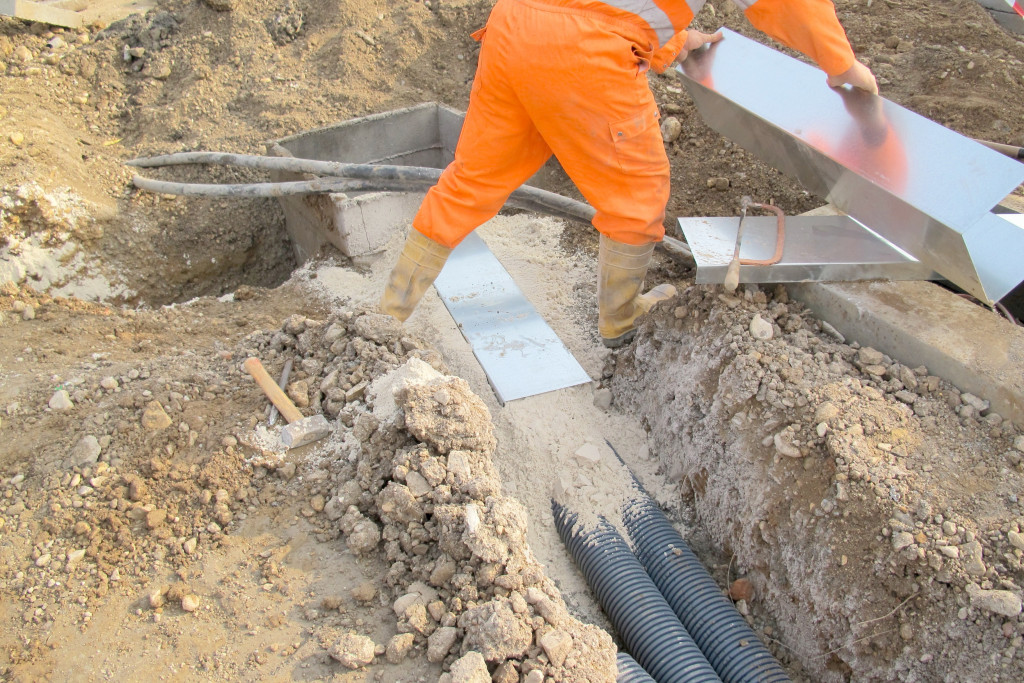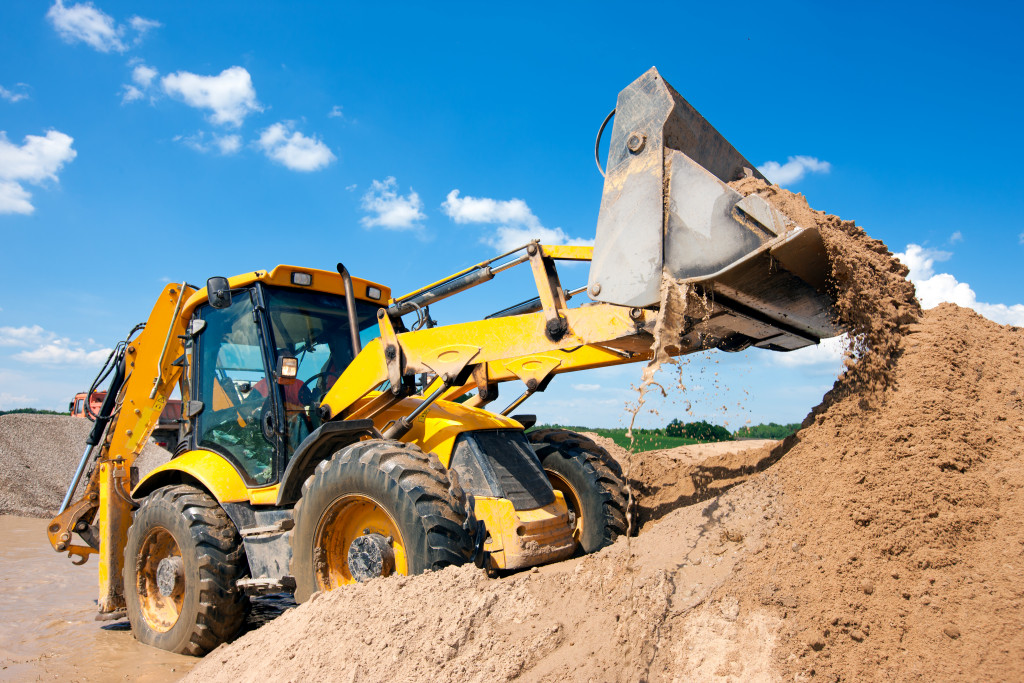Construction projects can produce a lot of pollution if not handled properly. To prevent this, it is important to understand the sources of pollution and how to control them. This article will provide an overview of the most common sources of pollution in construction and how to prevent them.
Storm Water Pollution
Construction and development projects daily disturb the earth and can cause erosion and sedimentation. These disturbances can lead to serious environmental consequences without proper management, including loss of vegetation, damage to aquatic ecosystems, increased flooding and decreased water quality.
Storm water pollution is a common issue in construction projects. It can be caused by site-runoff, sedimentation from disturbed soils, and emissions from vehicles and equipment. It is important to control runoff, sedimentation, and emissions to prevent storm water pollution.
You can control runoff by installing storm water detention ponds or filters. You can reduce sedimentation by stabilizing additives in the soil and minimize emissions by using low-emitting equipment. Taking these steps can help ensure that your construction project does not produce any harmful pollutants.
Registered SWPPP Reviewer (RSR)
A Registered SWPPP Reviewer (RSR) is a professional who has been certified by the U.S. Environmental Protection Agency (EPA) to review and approve Storm Water Pollution Prevention Plans (SWPPPs) for construction storm water management. They are responsible for ensuring that all plans meet federal and state regulations and that facilities comply with these plans. RSRs must be familiar with all aspects of storm water management, from planning and design to implementation and maintenance. They must also communicate effectively with facility owners and operators to ensure that plans are being properly implemented.
There are many benefits to having a Registered SWPPP Reviewer on staff. RSRs can help save time and money by ensuring that plans are designed correctly. They can also help facilities avoid potential fines and penalties by catching problems before they happen. Having an RSR on staff can also show regulators that a facility is serious about preventing pollution and is taking steps to ensure compliance.
Registered Storm Water Inspector
A Registered Storm Water Inspector (RSI) is a professional with a high knowledge and experience in storm water management. They must pass a rigorous examination covering rainfall analysis, drainage systems, and regulatory requirements. Candidates are also required to have at least five years of experience working in the field of storm water management.
By making sure that construction projects follow secure and efficient storm water management procedures, registered storm water inspectors contribute to environmental protection. They collaborate with builders, engineers, and developers to create and carry out designs that lessen the impact of runoff on ecosystems and rivers.
Registered Storm Water Inspectors reduce the possibility of adverse environmental effects by ensuring that storm water is correctly handled during construction. That prevents water contamination.

Certified Inspector of Sediment & Erosion Control
A Certified Inspector of Sediment & Erosion Control (CISEC) is a professional with a high level of knowledge and experience in erosion and sediment control. They must pass a rigorous examination covering erosion mechanisms, design principles, construction techniques, and regulatory requirements. In addition to passing the exam, candidates must also have a minimum of five years of experience working in the field of erosion and sediment control.
Certified Inspectors of Sediment and Erosion Control play a vital role in protecting the environment by ensuring that construction projects adhere to safe and effective sediment control practices. They work with developers, engineers, and contractors to develop and implement plans that minimize the impact of erosion on waterways and ecosystems. By ensuring that sediment is properly managed during construction, Certified Inspectors help to prevent soil erosion, minimizing the potential for negative environmental impacts.
Environmental Control Supervisor (ECS)
The Environmental Control Supervisor (ECS) ensures that the work zone’s air quality and environmental conditions are safe and compliant with all regulations. They work closely with the contractor to ensure that all equipment and materials are stored and used safely, and they also monitor the weather conditions to make sure that they do not pose a safety hazard.
The ECS is responsible for ensuring that the work zone is free of dust, fumes, and other airborne contaminants. They also monitor the air quality inside the work zone and make sure that it meets all safety standards. In addition, the ECS is responsible for ensuring that the work zone is free of hazardous materials and wastes.
The ECS is also responsible for monitoring the work zone for potential safety hazards and implementing safety measures to mitigate these hazards. They also conduct regular safety audits of the work zone and make sure that all safety procedures are being followed.
The ECS is responsible for ensuring that the work zone is a safe and healthy environment for all workers. They play a vital role in ensuring that the work zone is compliant with all safety regulations.
Keep Your Construction Project Environmentally Responsible
Construction projects can have a serious impact on the environment if not managed properly. That’s why it’s important to have trained professionals who know how to prevent water, soil, and air pollution. By using certified inspectors and supervisors, you can ensure that your construction project is environmentally responsible.

